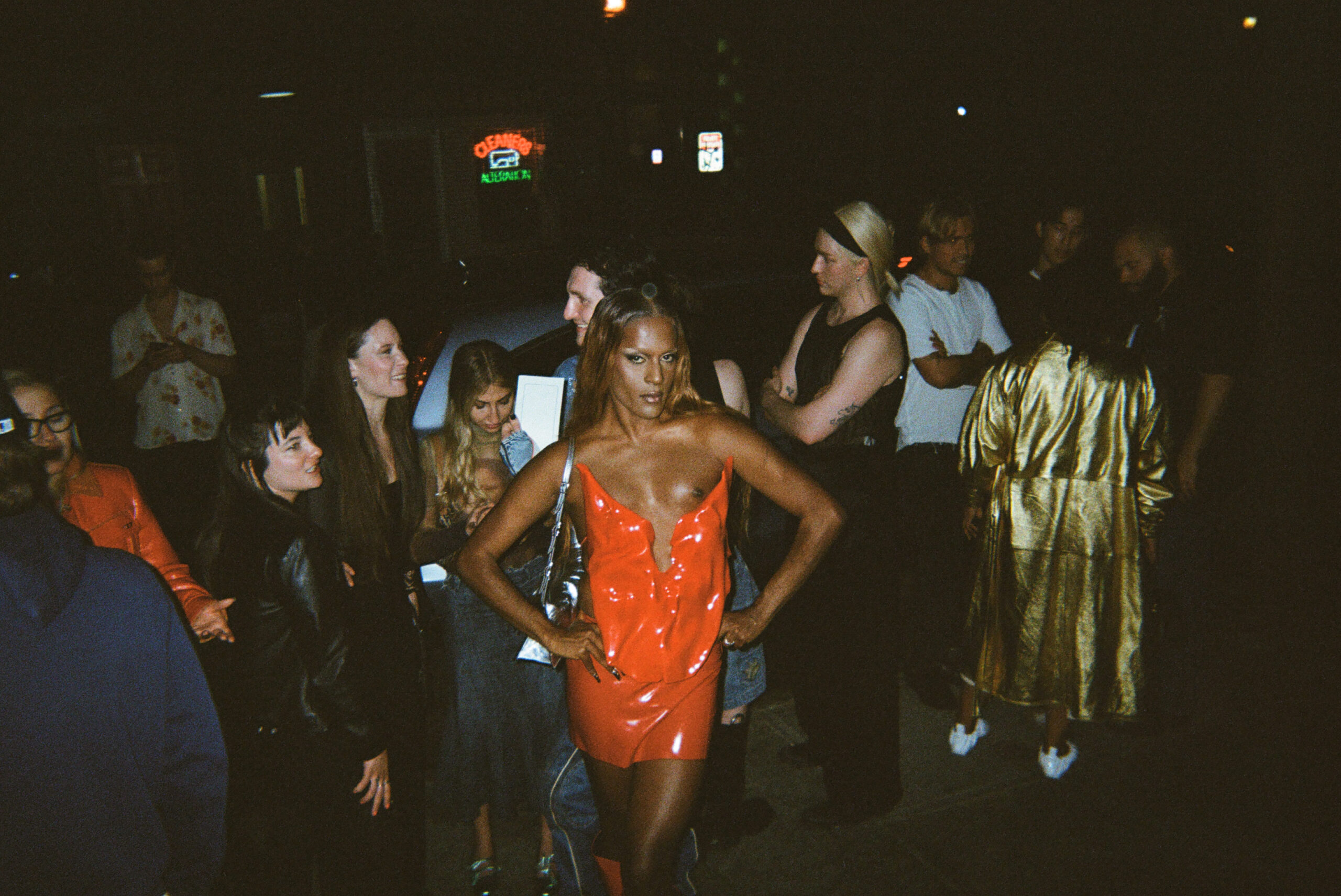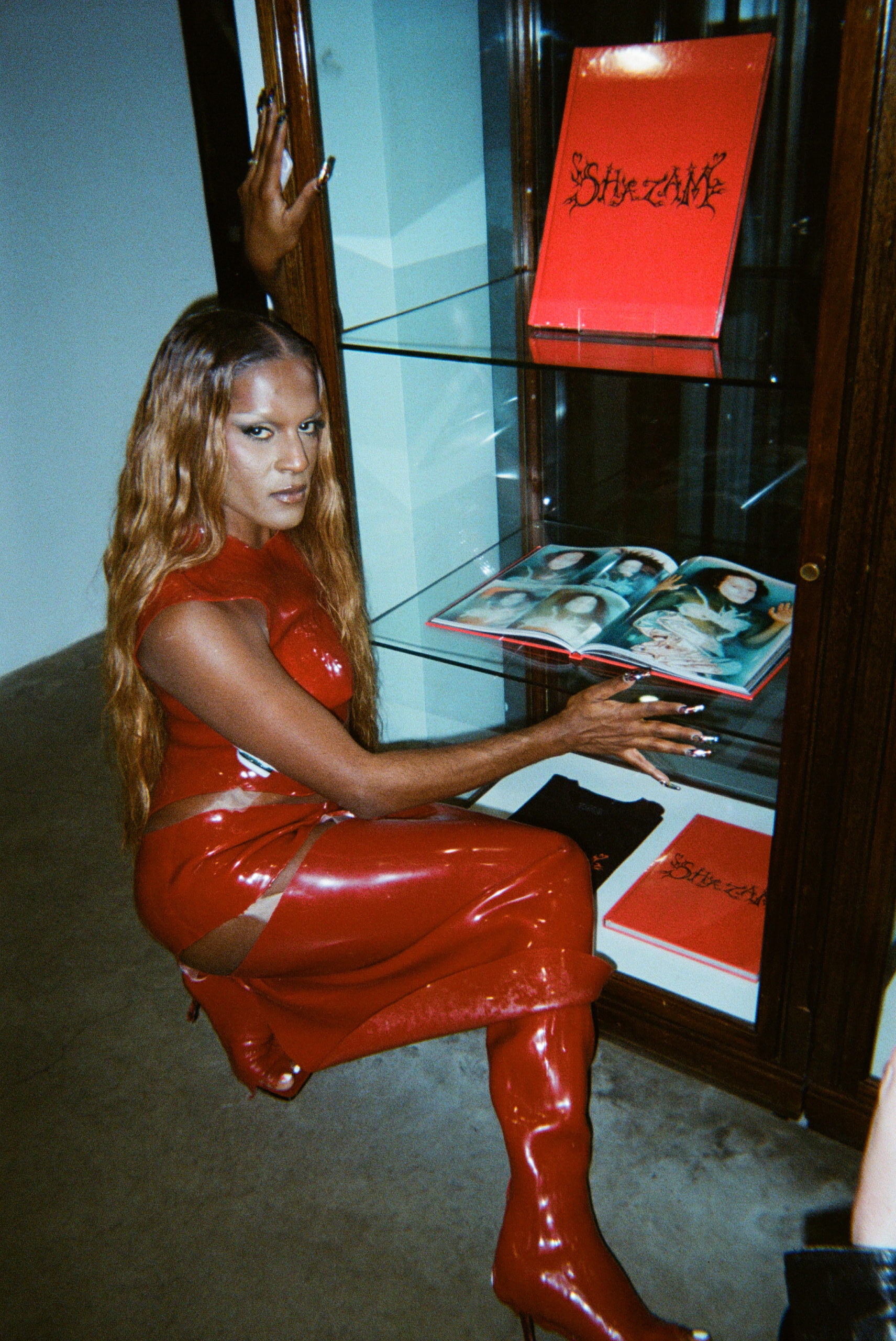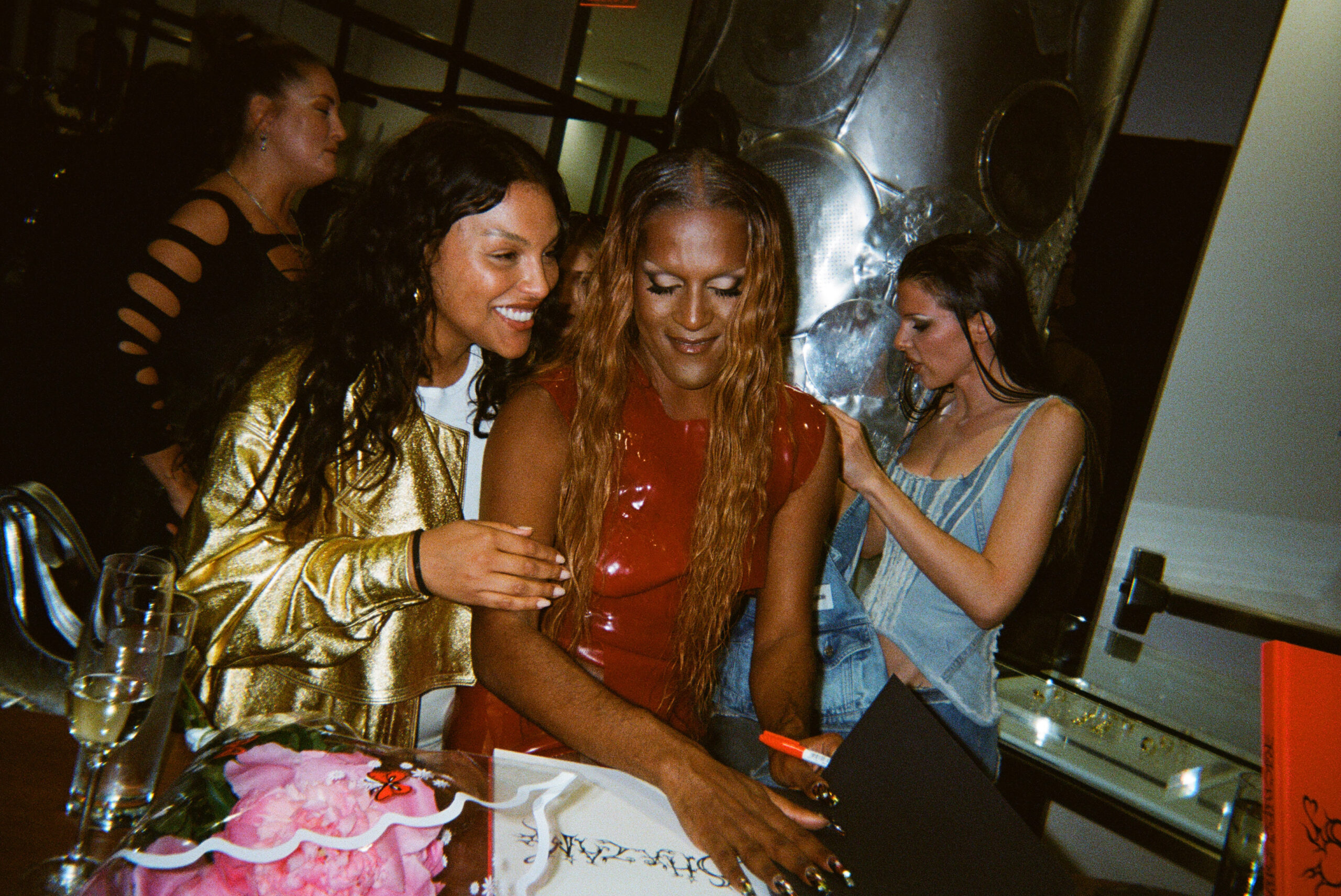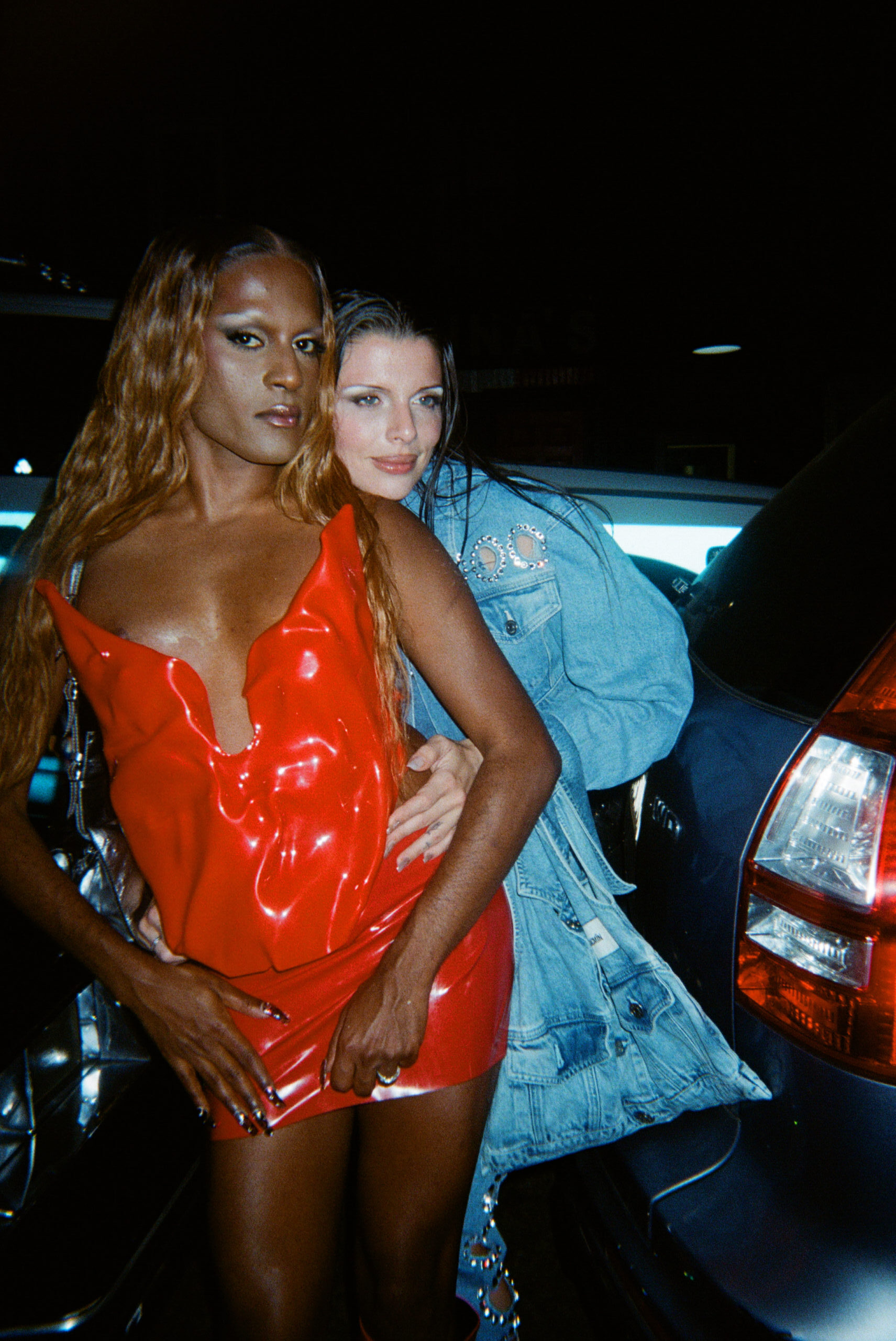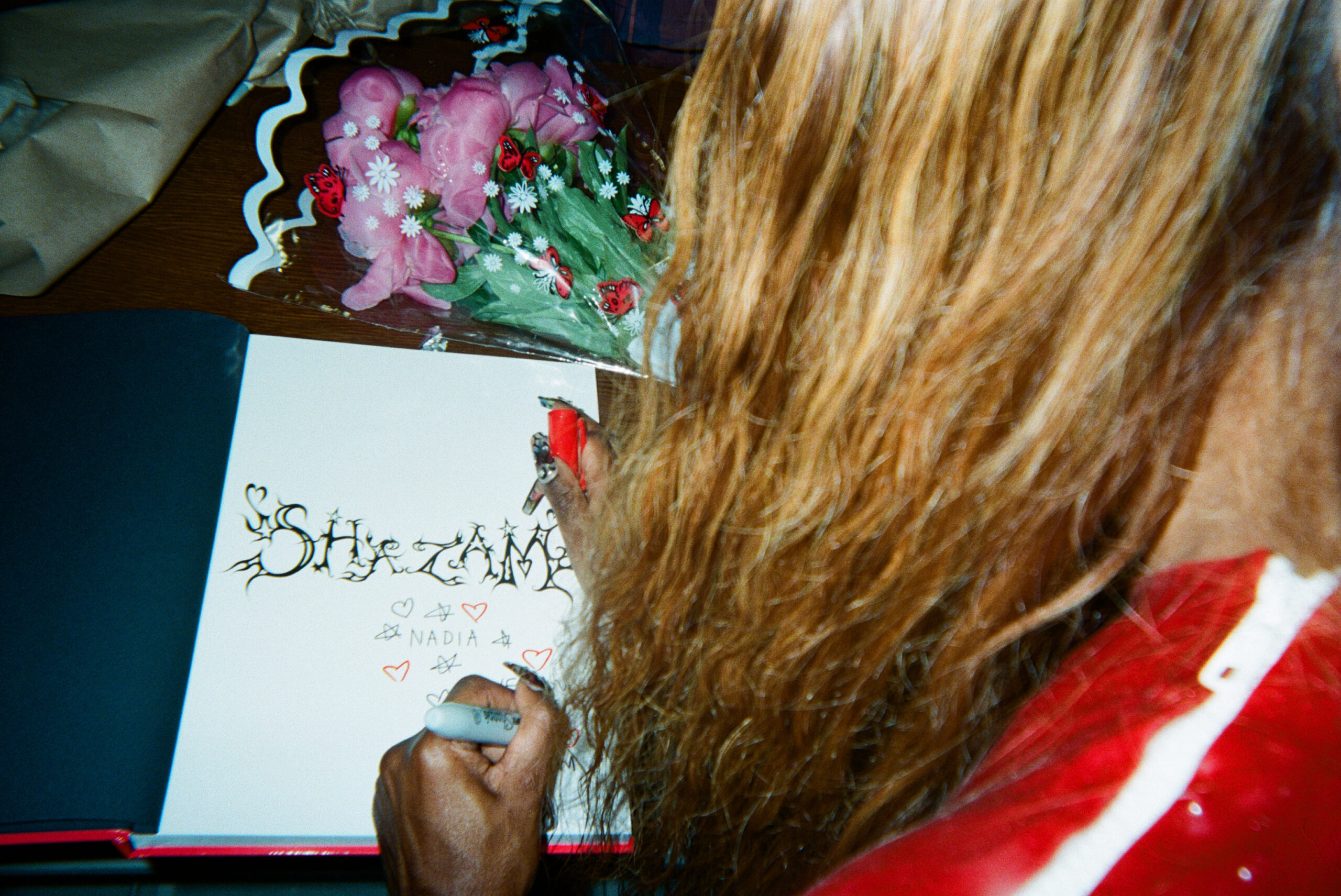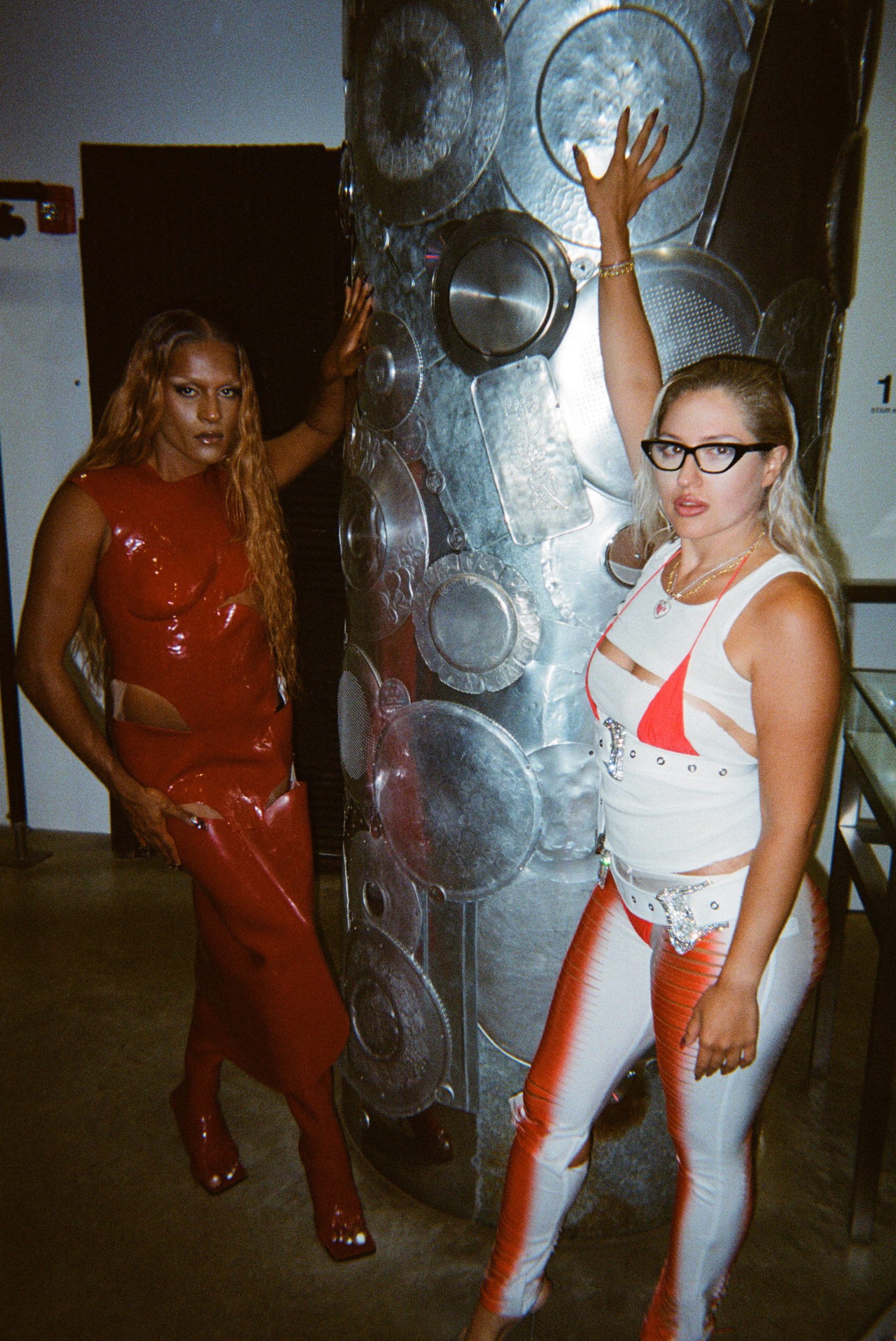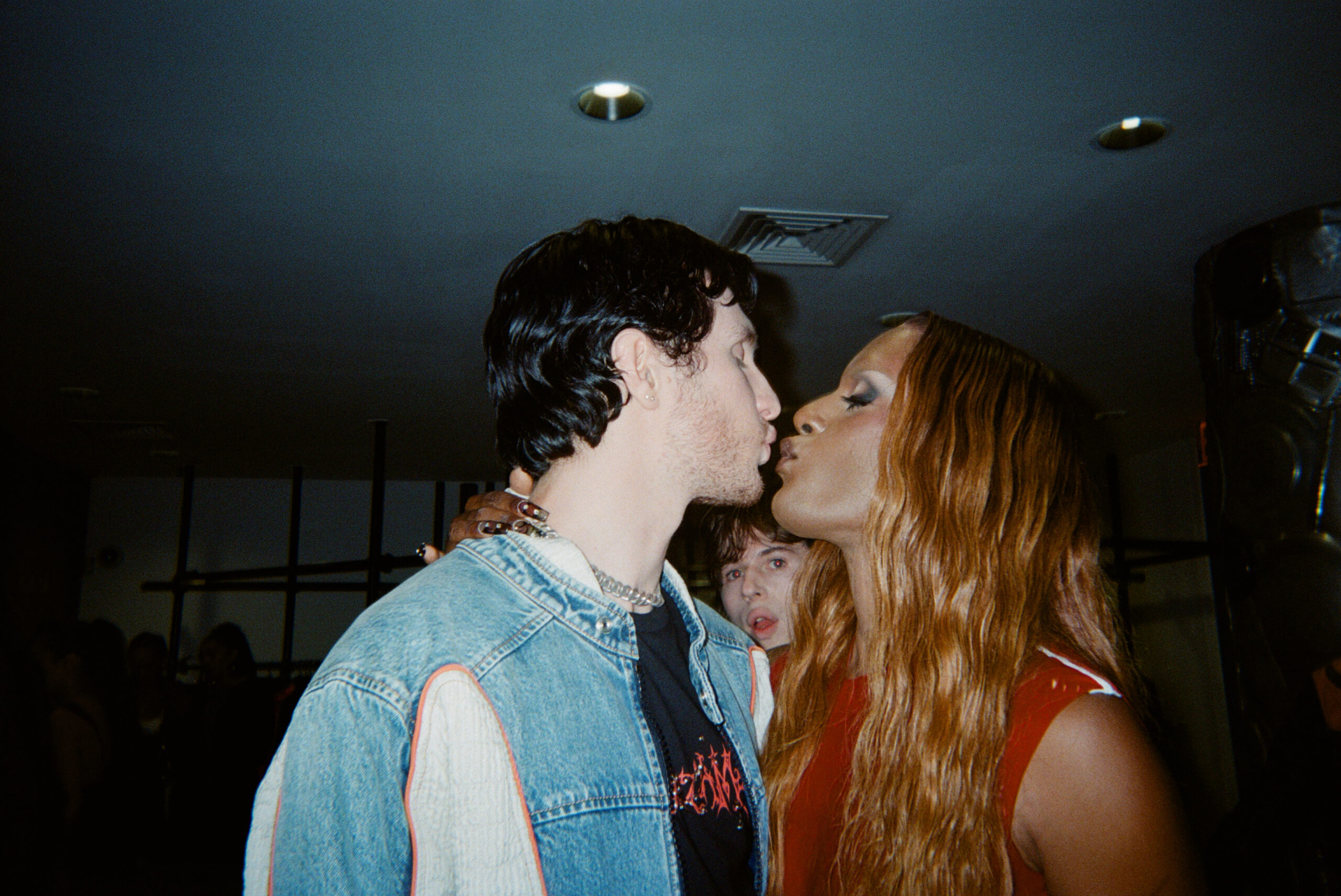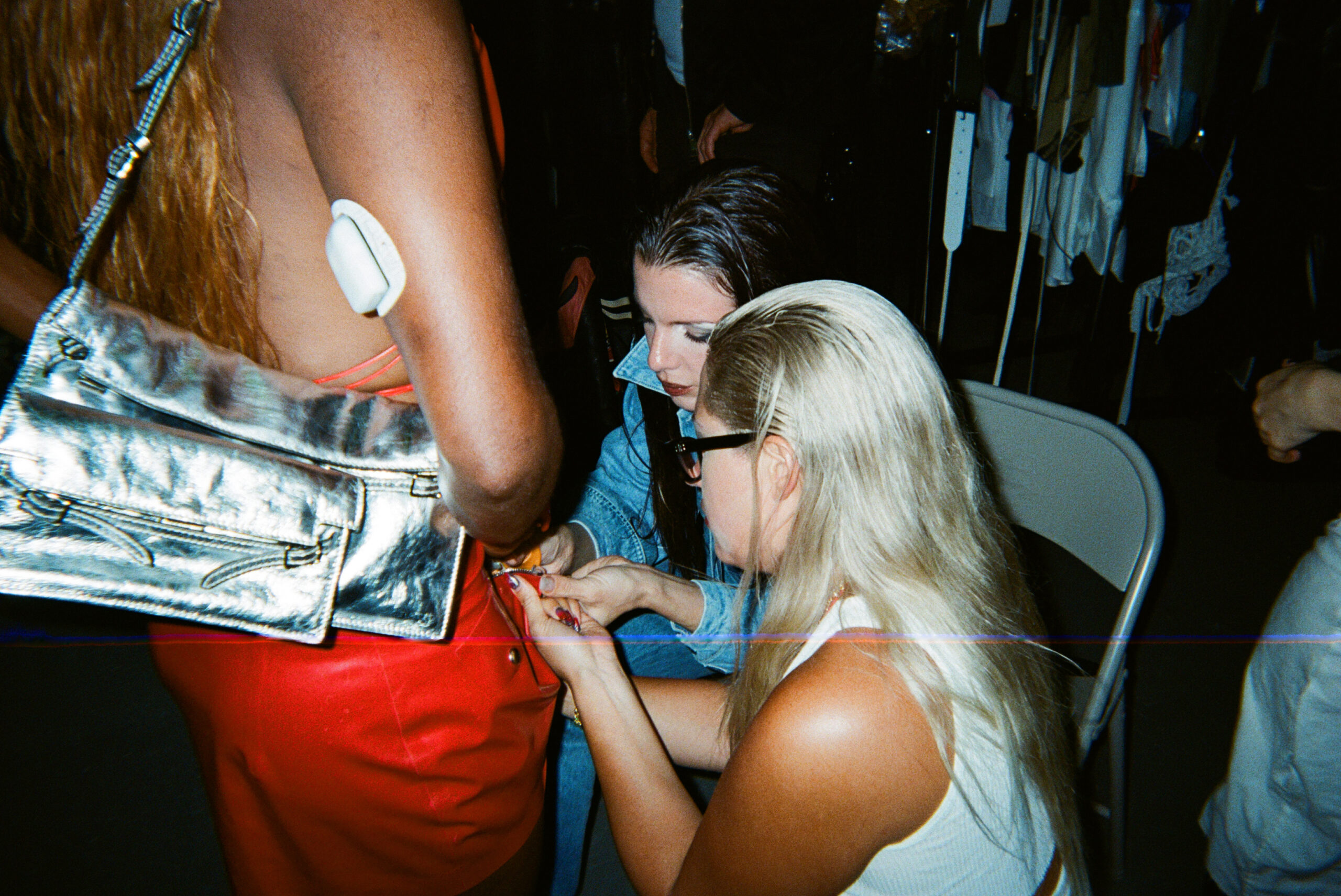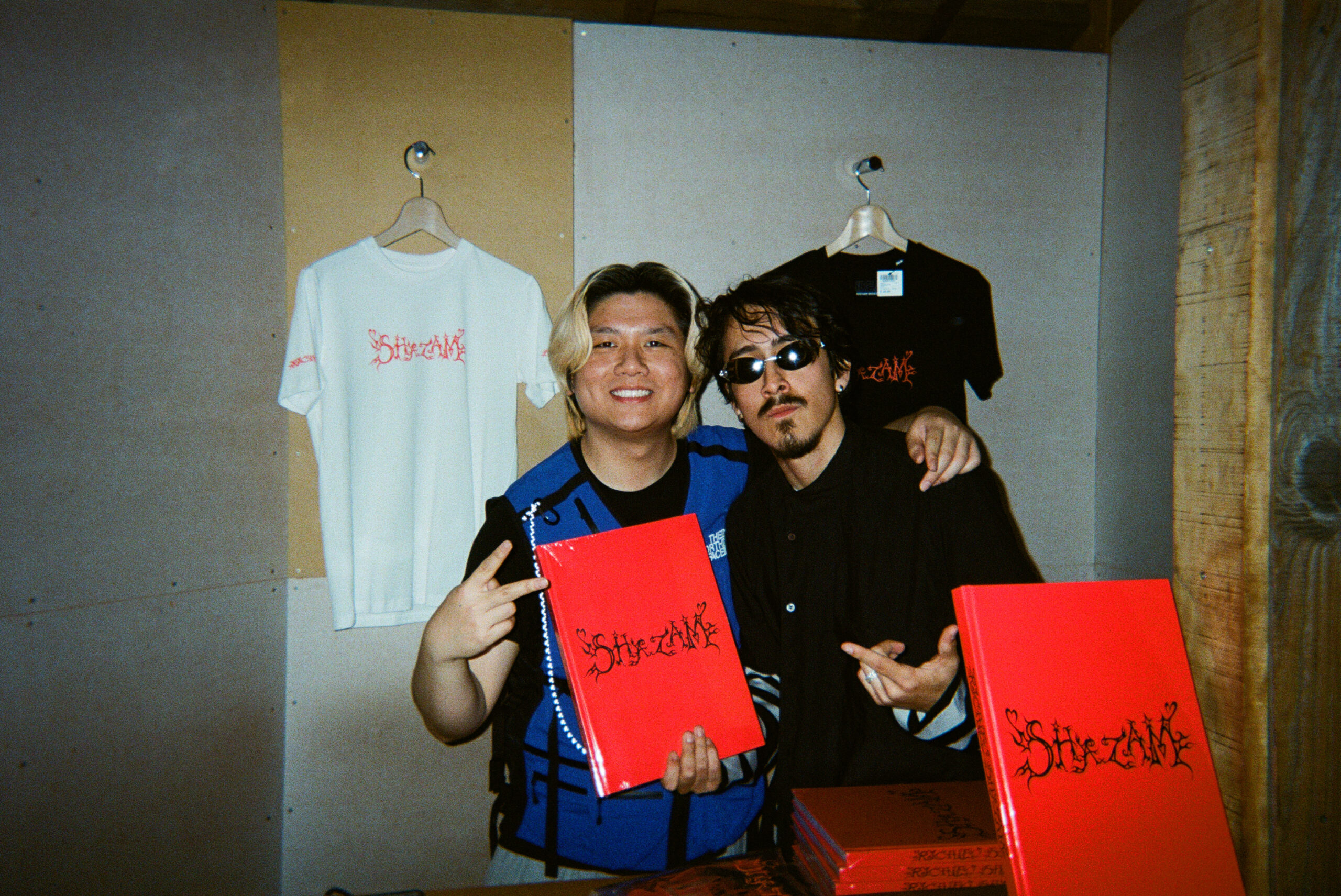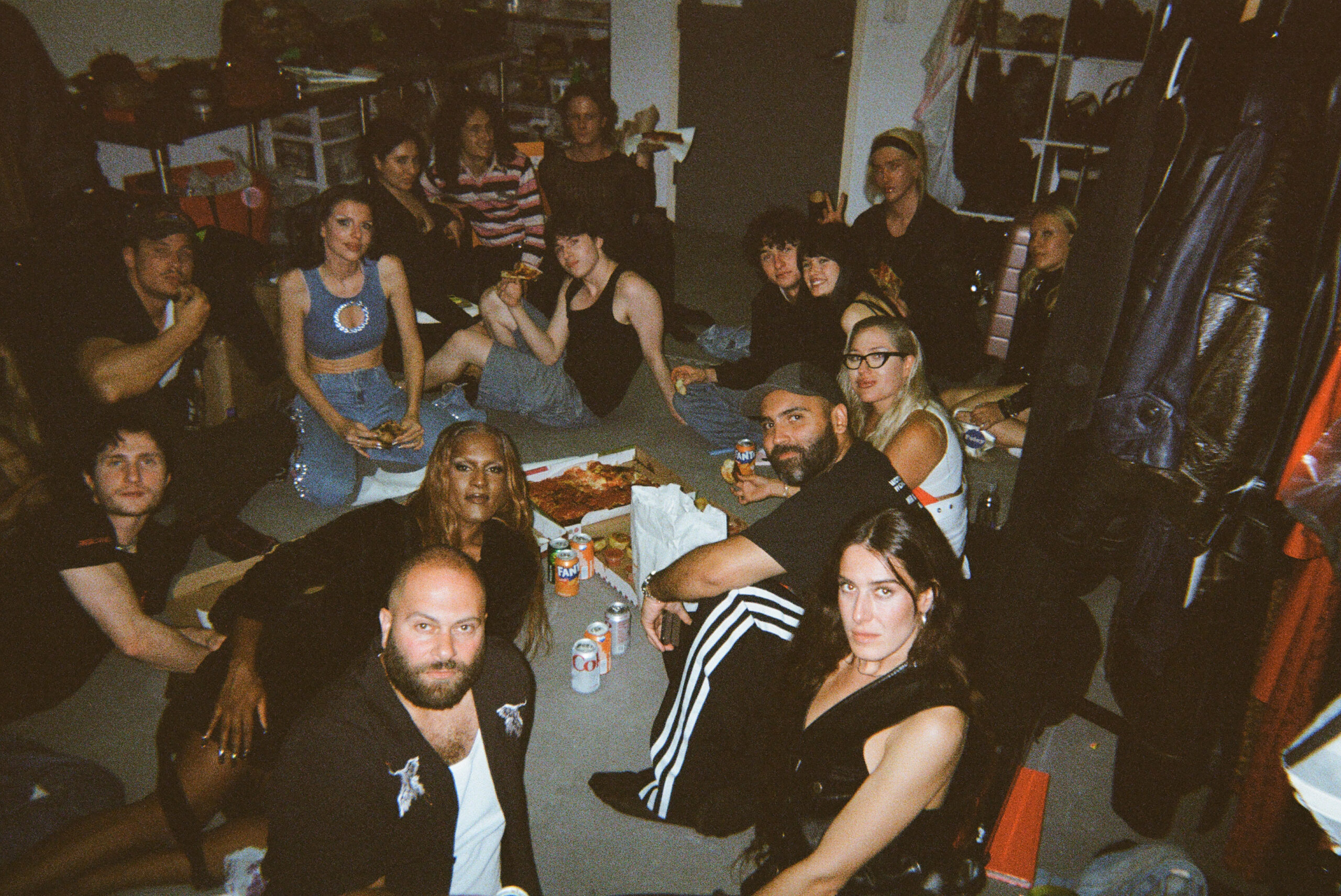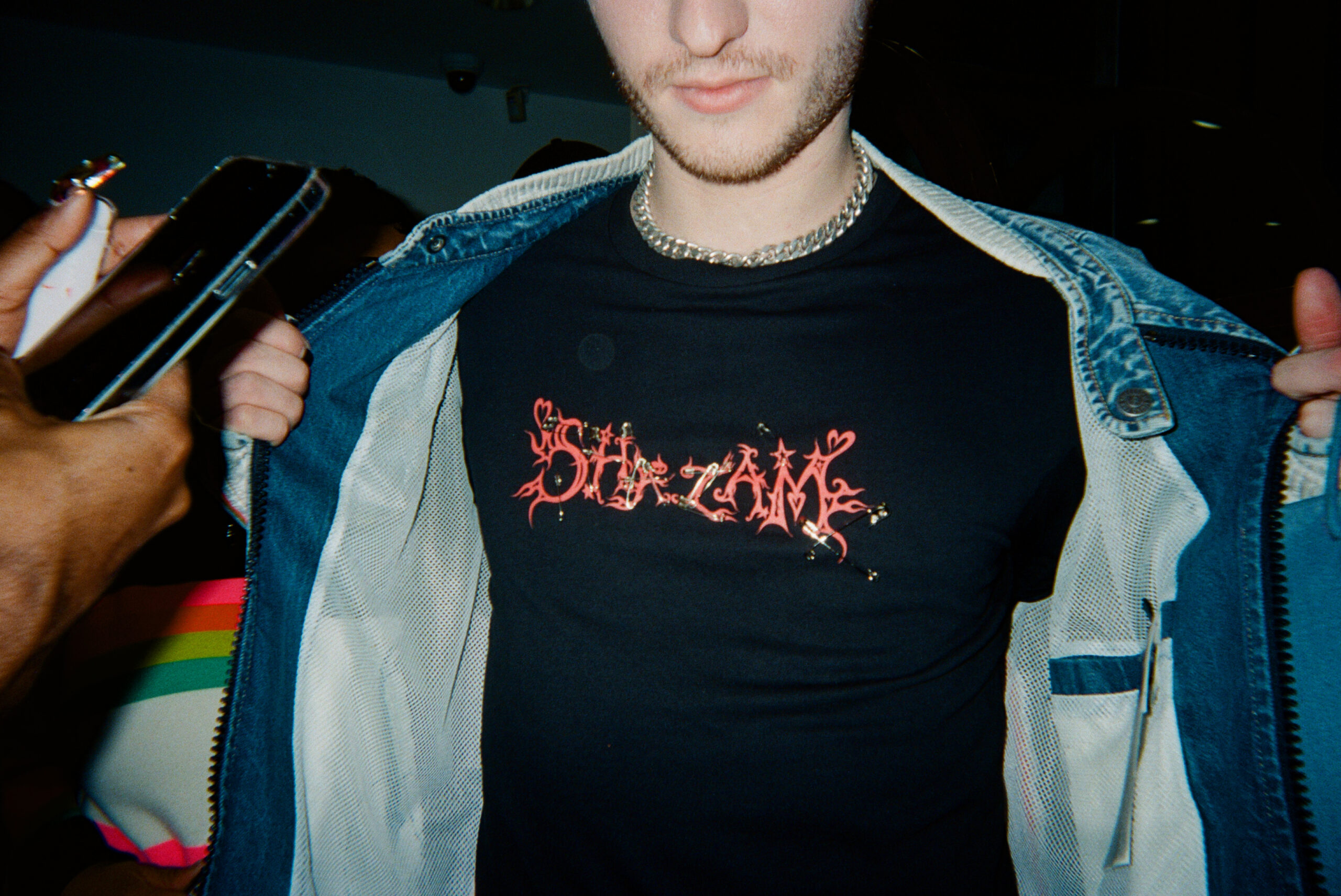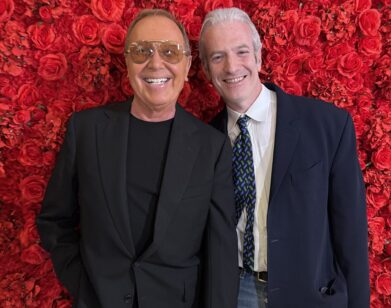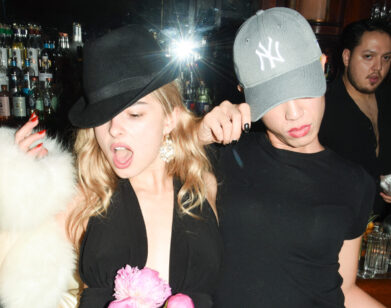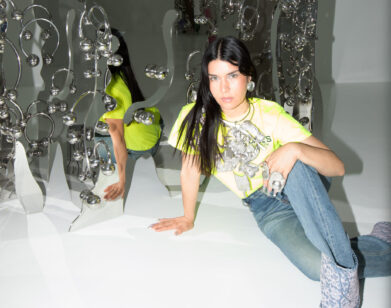FANGIRL
Welcome to Richie Shazam’s Factory
Last Friday, a crowd took over the streets outside the cool girl mega-boutique Dover Street Market. We were all there to celebrate Richie Shazam, everyone’s favorite diva, on the occasion of her new book SHAZAM, published by IDEA. Inside, Richie was tending to an ever-growing queue of creatives, fans, and family eager to get their copy signed and snap a picture—she’s nice like that. “The best part of the book signing was seeing girls that look like me,” Richie told me. “I took that extra moment and a minute to speak with them.” Julia Fox and Briana Andalore were in attendance supporting their sister, too. After a weekend of revelry, followed by rest, Richie got on the phone with me to talk about the beauty of making something you can hold, her cold brew addiction, and why sometimes a girl’s got to “run for the hills.” Plus, she was kind enough to share images from her book signing, shot by fierce friends and loyal collaborators.
———
RICHIE SHAZAM: Good afternoon.
ERNESTO MACIAS: How’s it going? I love your hair.
SHAZAM: Oh my god, thanks. I just switched it up today. Giving “Manic Monday.”
MACIAS: I love that song, and I love that you brought it up. Are you home?
SHAZAM: I’m calling from home. I feel like when I woke up this morning it was just so many thoughts at once. It was like, “Oh, you got a lot of shit to do. You need to get that fucking coffee, that caffeine drip and get to it.”
MACIAS: What’s your coffee order?
SHAZAM: I’ve been fucking with cold brew, heavy. I feel like I’ve never had a taste for it, and now I’m fully invested in cold brew because I think it really helps you defy gravity. You can really do a lot of shit when you’re on that cold brew.
MACIAS: Especially the first one.
SHAZAM: And then you come down a little bit and then you need to re-up. Now I have an almond iced latte. She’s cute.
MACIAS: She’s getting you through the day.
SHAZAM: It’s fucking hard. It’s hard to wake up. I don’t know, do I need to exercise? Do I need to become a workout baddie? What am I supposed to do? Them bitches always talk about endorphins, and talking about that crazy energy–
MACIAS: Sometimes when I’m having a midday down, I go for a walk and just breathe in fresh air, and it does help. But I’m not an exercise person, so I can’t vouch for the endorphins after working out.
SHAZAM: Every time I did the SoulCycle I would be manned down. I’m good, I’m tired now.
MACIAS: Okay, so your book SHAZAM is out. How are you feeling after the book signing and the after-party? Have you settled a little bit?
SHAZAM: It’s quite interesting, because I didn’t really know what emotion I would feel because this has been such an insane project. I think with everything I do, I give it 1000%. But this was so different because it was something that had been in the works for so long as an idea. And then it finally being fully articulated was something that I couldn’t really fathom. I’d grown really accustomed, especially in the past year or two, in creating things that live on the internet and then they live on a 24-hour cycle on an Instagram feed and then it’s over. I never saw myself as being a content creator. But obviously, with the times, that’s just what we do and that’s our proximity to the bag. You know what I mean? Investing this energy and time on something that’s singularly my own, and investing in it without not really knowing how it was going to live, was a new phenomenon and quite thrilling. I think Friday, seeing the gnarly response from our community of New York was incredible and vast. I wasn’t even thinking about myself, but rather my collaborators and the people that I worked with, for them to have that turn up. I still want to do another thing just singularly for them because I think it was just so awesome to be in a room with all of them and letting them see how our work lives in a book.
MACIAS: I was reading that you were given total freedom, carte blanche, to make this book whatever you wanted. What is it about?
SHAZAM: I think the freedom was rooted in confinement. I really developed my, I would say “artist practice” during the pandemic, creating these self-portraits that were made with literally nothing. Left to my own devices, what can one create? Me and my family of creatives, we really champion that—we recycle and we bring things to life. So the book is essentially fantasy, and it’s about really evoking all of the different pillars of my identity—really fleshing them out. I wanted to bring to life all of these fashion hair and makeup stories, and let them bleed together chaotically. 80-90% of the imagery was made in my studio, literally every single corner of that space was utilized in bringing each image to life. There’s no Zoom call, there’s no mood board. Everyone is free to do whatever they want. Really giving that old-school New York way of creating, which is how I grew up. It’s how I grew up in the city, and I really wanted to bring that back, because that was thrilling. And not for nothing, I haven’t really had fun in a long fucking time. I just wanted to have fun with my friends and make some really dope, fun shit. That spontaneity that I feel is missing. Getting more personal, in the past year I’d really stepped into being a robot. I have these assemblages on my body, my Texecom and my Omnipod that keep me alive healthy, and monitor my blood sugars, give me my insulin. I’m really owning my diabetes. We made really conscious decisions not to retouch the images, to really showcase the intricacies of my body. My weight is fluctuating, I’m all over the place, and this is what I have to do to stay alive. It’s that on top of owning and stepping into my transness, and really stepping into me being an experience and not being this singular binary ritual.
MACIAS: Did you learn anything about yourself that you weren’t aware of in the process of making this with family and friends?
SHAZAM: Definitely. I definitely think that I feel so much pressure all the time with work and how I look—that constant chasing of that one image of how we look. Ugh, I want to revisit when my body looked like that, and I want to get back there. I really let that go. I’m owning my image and really taking back that power, it was quite invigorating. I feel very lucky and blessed. I also put in a lot of work. I really wanted to eliminate the multihyphenate title, because people just don’t understand how individuals like us have to work and survive. I wear a lot of different hats, but I think ultimately it’s really owning my artistry. I love thinking outside the box and I live my life always quite punk rock, anarchist. I don’t really adhere to the rules. I find that I’ve been having to sanitize myself a bit, always being digestible. And that’s why there was a lot of intention with the book from the cover, it being this satanic, hellish red.
MACIAS: Well, on that note, what would you say is the biggest misconception people have about you?
SHAZAM: I’m not going to lie, I once really had a strong obsession with how people see me. I realize that I’m getting older and wiser and literally, I’m in a space where I really lean into my community. I love working with emerging designers, young artists. I have a recipe to my madness. I think we really stepped into that Warholian idea of The Factory—Richie’s factory. We were really seeing the magic that was unfolding. I think it really is about telling people that you can make something out of nothing. You can really do whatever you want to do.
MACIAS: And that’s what a lot of us come to New York City to do. Do you recall the first time you saw yourself reflected in a movie or a book? Have you ever had that experience?
SHAZAM: Well, one impetus to create an extreme beauty, fantasy book that allows you to transport into different worlds was because I hadn’t seen myself like that. I think to be a true artist you have to understand what exists in the world in order to make change. I didn’t want language to be a big pillar of the book, I wanted the imagery to speak for itself. I think that there is such power in having an image with nuance, there’s so many thematic messages happening at once. I started out with nothing. I got something now, I fucking worked my ass off for it. I invested in this project and I invested in all of the people to really come through. And it was a revolving door of characters and all the real ones showed up.
MACIAS: A lot of the people in the book are your friends, family, and your partner. You’ve known Julia [Fox] and Brianna [Andalore] for a long time. Has your definition of family changed, or deepend?
SHAZAM: 1000% it’s gotten intensely deeper. I think that when you are doing such a highly personal, reflective body of work, it only allows you to connect on deeper levels. That’s why everyone’s stepping into their own inner artist. It’s a lot of trust and vulnerability, and a lot of fear attached too. I feel so fortunate that I can really lean on to someone like Ben [Draghi]. Ben who knows me. He’s always telling me, “Your voice is so strong, you just need to pick up the phone and talk to people.” I have my built-in wall of, “Oh, that’s not my style. I can’t get on TikTok and do what they do.” I admire it, I’m glued to it. I won’t participate, I just have so much fear around it.
MACIAS: My very first time on set was with you and Billy Porter. I always tell people that I couldn’t have asked for a better experience. It’s not often that you walk into a set and you see talent that is not white, and a photographer who’s not white, also. You were so embracing and welcoming and I’ve never forgotten that. But right now in this country, queer and trans lives and identities are being threatened just for existing. So do you consider your book to be a political act at all?
SHAZAM: I definitely feel there’s a lot of resistance that the book was innately built upon. I think when you spent your whole life with people saying “no”—what’s happening in the country is so fucked up and it’s so messed up. Do you know that this is something that we’ve dealt with from the jump? It started in our families, it started in our culture. It’s something that I’ve learned I can never truly escape. What I can do is always make the most of it. Yes, this book is definitely a book of resistance. It’s a book of protests. It’s a book of being your unapologetic self and really leaning into your body, your anatomy. I still enter so many spaces where there’s no one else that looks like me. So there’s still so much ground to break and there’s so much ground for us to occupy. All of the institutions that we work within, whether it be fashion, whether it be art, were made by white people for white people. Those hegemonic powers, they’re still going, and we are coming up in the spot. Shit’s going down and we’re like, “Okay, how am I going to get my next check? How am I going to eat tomorrow?” I didn’t come from privilege. I’m from the streets. Born and birthed by the streets. That’s hard.
MACIAS: Right. And you do it with such grace and attention. Where do you think that comes from?
SHAZAM: Well, I think I have a deeper connection to people and how I treat people. I really care about people. I really love making people feel safe and secure. That’s actually how we tear down the tyrannical powers. I meet people with kindness. I think that when you do walk into a room where it does feel unfamiliar or unstable, it is about warmth and being kind.
MACIAS: We are lucky enough that we get to live in New York City, where we are encouraged to be ourselves. Would you have any advice or words for someone that doesn’t live in a place like this?
SHAZAM: I honestly think that it’s giving run for the hills. I think that you need to run, hop on that train, get on that bus. You need to work wherever the hell you need to work. Save up some coin. Just go to spaces where you’re welcomed and where you’re embraced. Listen, I was raised in Jamaica, Queens, and a really Guyanese first-generation household. I did not fit in my house. It was obviously through academia that I was able to explore all of the different facets of my brain. I fucking hopped on that train and I ran away from home. I hate that when someone says, “Oh yeah, I accept your lifestyle.” No, fuck out of here. Chopped. I’m good. I’m going to get the fuck out of here. Because you don’t respect my alienness, you don’t respect that I’m an outer-worldly goddess, I need to cut ties and go where I’m embraced. That’s why it’s in those growing pains that you really build your sense of self and power.
MACIAS: I love that.
SHAZAM: I’m also over those PC pride responses. Because it’s also rooted in whiteness. For me, the best part of the book signing was seeing girls that look like me. I took that extra moment and a minute to speak with them. I just wanted them to know that we are here and this book is representative of that. We deserve to be in books that will be artifacts 50 years from now. I didn’t grow up with books with people that looked like me. I think that’s why it’s important and I want to keep growing and building this into a part of my practice because I think that it has the ability to really impact people.
MACIAS: We’ve come so far, but it’s still so important to see someone that looks like our own reflection.
SHAZAM: I think it’s about the skin tone, you know what I mean? It’s about that lush, beautiful, brown skin. Growing up in that era of whiteness and how whiteness is prized—we need to reset these beauty norms. We’re in our indigenousness and our authenticity.

